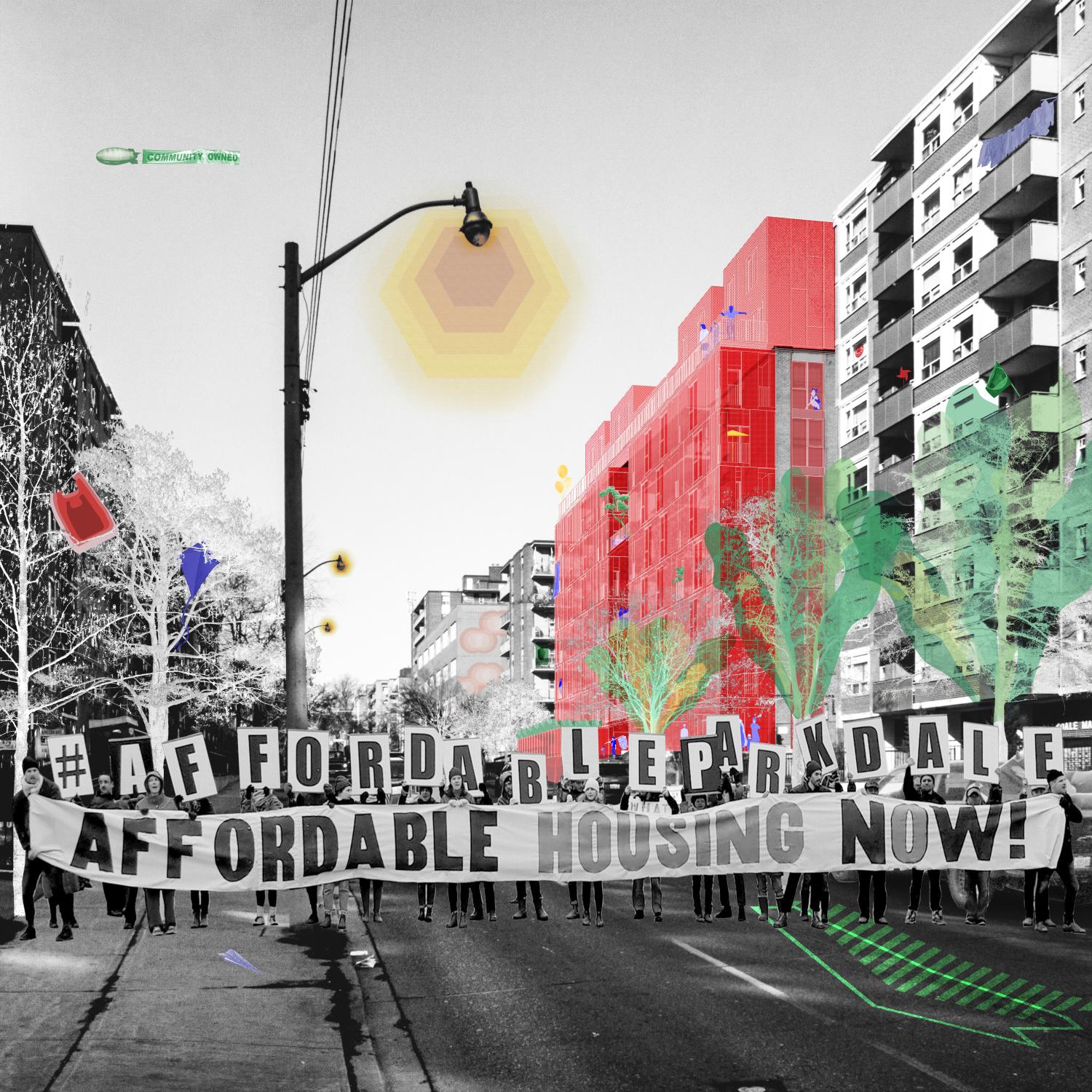
Join the Campaign for a Gentrification Tax
Support the campaign for a municipal tax to fund locally managed, deeply affordable housing by adding your name to the letter below.
May 20, 2023
Dear City of Toronto Councillors and Mayor,
As you are well aware, Toronto suffers from a housing emergency. Gentrification signals the displacement of lower income residents and we know this crisis hurts people disproportionately based on race and gender as well as class. We need to build a city in which all citizens have access to good quality affordable housing, rather than one where housing is a speculative asset. In order to cultivate equity the City must expand mechanisms to fund and maintain affordable housing.
We demand a hypothecated tax directed specifically to deeply affordable, locally managed housing in the form of land trusts and housing cooperatives. Large gains on the sale of residential real estate in Toronto are drawn from the culture, services, and vitality of the surrounding neighbourhood. Indigenous people, community organizers, local businesses, newcomers, tenants, publicly funded infrastructure, and ecosystems all create value that makes a neighbourhood desirable. Yet owners pocket this value, even though they haven’t earned it. This profit is called the “unearned increment” and it should be taxed and reinvested locally.
The Gentrification Tax is levied as a percentage of the increase in home value, declining from the year of purchase. Benefits range:
- Disincentivize the quick turnover of property. Cool the speculative market.
- Incentivize rental housing, as owners rent while waiting for the tax to decline.
- Keep the social increment of profit, generated not by the landowner, but by the neighbourhood that surrounds them, within the community.
The tax rate, averaging 10%, is low enough that residents can recoup money they have invested for retirement. The tax will create new housing for lower income residents pushed out or under threat of eviction. People can stay.
This tax will build on existing mechanisms. It will be hypothecated, directed to a specific function, like Toronto’s Community Benefits payments, and placed on gains from the sale of residential property, like a Capital Gains tax. A Gentrification Tax averaging 10% on the sale of all residential real estate could more than triple the City’s current housing budget. In the short term, much of this income will be dedicated to the construction of new units (while later a larger percentage would be focused on maintenance), creating 100,000 new and deeply affordable homes over the next 10 years.
Yours Truly,
Gentrification Tax Action